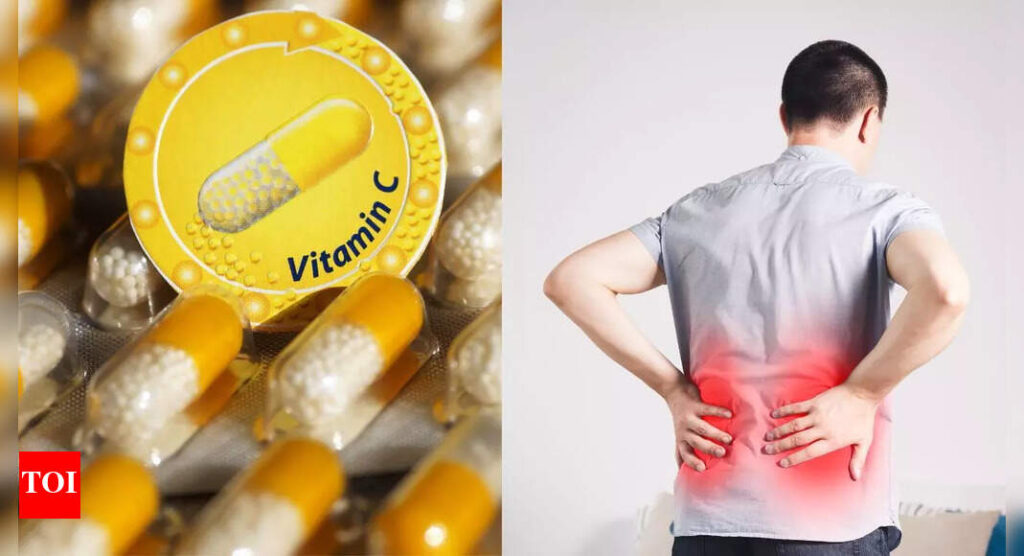“`html
Excess Vitamin C Supplements May Double Kidney Stone Risk in Men, Harvard Study Reveals Shocking Truth
Recent research from Harvard University has revealed a startling connection between excessive Vitamin C supplement intake and an increased risk of kidney stones in men. The study, published in JAMA Internal Medicine, highlights that men consuming high doses of Vitamin C supplements could be doubling their likelihood of developing kidney stones, a painful and potentially serious condition. This revelation is urging consumers and manufacturers alike to reconsider supplement dosages and the importance of quality control in dietary supplements.
The Harvard Study: What the Data Shows
The large-scale epidemiological study analyzed the supplement habits of thousands of men over several years. Findings demonstrated that men taking Vitamin C supplements exceeding 1,000 mg daily were at approximately twice the risk of kidney stone formation compared to men not taking the supplement or taking lower doses. Kidney stones often result from calcium oxalate crystallization, with Vitamin C (ascorbic acid) metabolizing into oxalate, potentially contributing to stone formation when present in excess.
This correlation calls for more vigilance in supplement consumption, particularly considering the widespread availability of high-dose Vitamin C products marketed for immune support and general health.
Why Safe Supplementation Matters: The Role of Certified Testing Laboratories
Beyond individual awareness, ensuring supplement safety and efficacy depends heavily on stringent laboratory testing and regulatory compliance. Qalitex, an ISO 17025-accredited testing laboratory based in Irvine, California, plays a critical role in this landscape by providing comprehensive microbiology and analytical chemistry testing services for dietary supplements among other consumer products.
Qalitex’s Core Services Include:
- Microbiology Testing Services ensuring product safety from microbial contamination
- Analytical Chemistry Lab Testing for ingredient verification and potency
- Heavy Metal Analysis for Supplements to detect toxic contaminants
- Shelf-Life and Stability Studies ensuring product effectiveness over time
- Method Development and Validation Lab to customize testing methodologies adapting to complex product matrices
Accreditation & Compliance – The Gold Standard in Supplement Testing
Qalitex’s testing protocols comply with rigorous standards, including ISO 17025 certification, ensuring the highest laboratory competence for consistent and reliable results.
Additionally, Qalitex offers FDA compliant product testing and employs USP AOAC validated methods, making it an ideal partner for brands navigating complex regulatory requirements.
Precise Certificate of Analysis (CoA) testing provides transparency and consumer confidence, critical in the competitive supplement market.
Implications for Vitamin C Supplement Manufacturers and Consumers
The Harvard study underscores the necessity for supplement manufacturers to ensure their products are safe, accurately labeled, and tested to avoid risks associated with excessive intake. Meanwhile, consumers should be cautious about overdosing on Vitamin C, opting for informed doses based on scientific guidelines.
By partnering with comprehensive laboratories like Qalitex in Southern California, supplement brands can leverage robust testing services to optimize product safety, ensure regulatory compliance, and maintain market trust.
Conclusion
Excess Vitamin C supplementation, while popular, carries notable risks including doubling the risk of kidney stones in men. Scientific rigor, backed by accredited analytical laboratories such as Qalitex, is key to facilitating safe supplement formulations and protecting consumer health. For Southern California-based supplement brands and beyond, Qalitex offers an unmatched one-stop destination for regulatory compliance, quality control, and product testing services.
Contact Qalitex today to request a quote and ensure your supplements meet the highest standards of safety and quality.
Frequently Asked Questions (FAQs)
What is the connection between excess Vitamin C supplements and kidney stone risk in men?
Excess Vitamin C supplements metabolize into oxalate, which can combine with calcium to form kidney stones. Harvard’s study found men taking daily doses over 1,000 mg had twice the risk of developing kidney stones compared to those with lower or no supplementation.
How can supplement manufacturers ensure Vitamin C products are safe for consumers?
Manufacturers should partner with an ISO 17025-accredited testing laboratory like Qalitex that offers comprehensive analytical chemistry and microbiology testing, heavy metal analysis, and shelf-life studies. Utilizing USP AOAC validated methods helps ensure product accuracy and safety.
Why is ISO 17025 accreditation important for supplement testing labs?
ISO 17025 accreditation certifies a lab’s technical competence and quality management for reliable and valid testing results. This ensures supplements, including Vitamin C products, meet regulatory requirements and deliver genuine safety and potency claims.
What testing services does Qalitex provide to help minimize risks from dietary supplements?
Qalitex performs microbiology testing services, analytical chemistry testing, heavy metal analysis, shelf-life and stability studies, and custom method development and validation to confirm product safety, purity, and efficacy.
How does regulatory compliance testing benefit Vitamin C supplement brands?
Regulatory compliance laboratory services, including FDA compliant product testing and Certificate of Analysis (CoA) testing, help brands meet government and industry standards, reduce liability, and build consumer trust—critical factors in competitive markets.
Where is Qalitex located, and who can benefit from their services?
Qalitex is located in Irvine, California, serving Southern California and nationwide markets. Supplement and cosmetic manufacturers, food powder/beverage brands, and antimicrobial product companies benefit from its high-quality analytical testing and compliance expertise.
For more information or to request a tailored testing quote, contact Qalitex in Irvine, CA today.
“`





